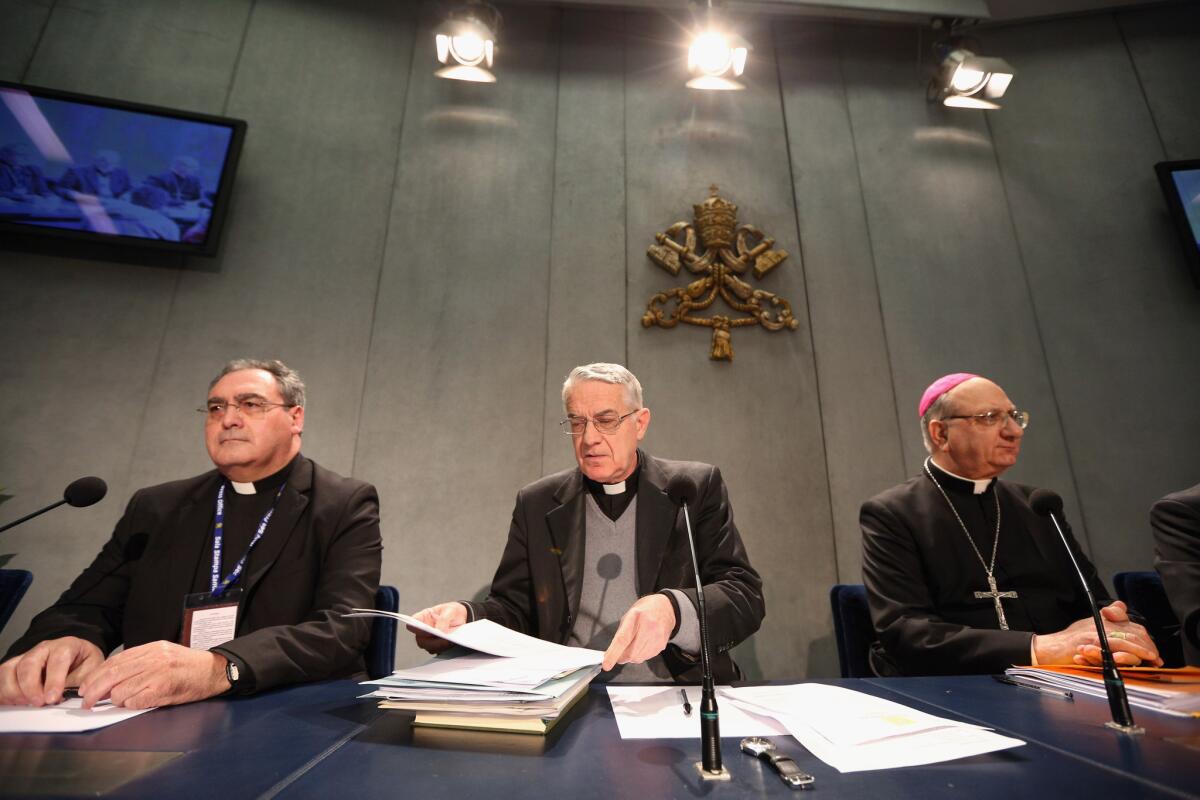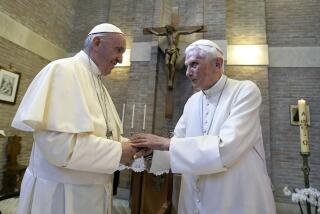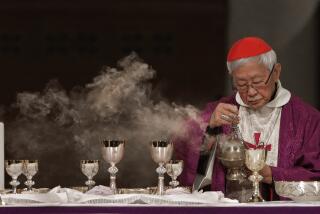Pope Benedict changes rules to allow quicker selection of successor

ROME -- Pope Benedict XVI paved the way Monday for cardinals of the Roman Catholic Church to gather earlier than usual to elect his successor if they choose to do so after he steps down later this week.
Benedict amended the Vatican’s rules governing when cardinals are supposed to start meeting to select a new pontiff, usually between 15 and 20 days once the office becomes vacant. The new rules allow the cardinals to assemble earlier than that if all those eligible to vote for a new pope are present.
The change could facilitate the naming of Benedict’s successor in time for him to preside over Holy Week celebrations leading up to Easter Sunday, which falls on March 31.
PHOTOS: Pope Benedict XVI’s last blessing
The previous rule was designed mostly to give cardinals from around the world time to converge on Rome after a pope’s death. But Benedict’s surprise announcement that he would resign has allowed the “princes” of the church to begin arriving here before his papacy ends Thursday; most of the cardinals are expected to be on hand for him to bid them farewell on his final day.
Some analysts expect the cardinals then to decide to open their conclave about March 10 so that they can try to agree on a successor to Benedict within a week and have the new pope installed March 17. (Papal installations traditionally take place on Sundays.) That would allow the next pontiff to lead celebrations beginning on Palm Sunday, March 24, and culminating on Easter a week later.
The rule change is one of Benedict’s final acts as pope.
A Vatican spokesman also said Monday that Benedict would leave secret a much-speculated-about report on the inner workings of the Vatican, which will be given to his successor to read but not to the cardinals.
The report was commissioned by Benedict in the wake of the scandal over documents leaked by his personal butler, which showed infighting and corruption in the Vatican’s upper echelons. Italian media have issued reports purporting to reveal the contents of the top-secret dossier, but the Vatican has dismissed the accounts as baseless.
ALSO:
Italians hoping for a homegrown pope
Politics, personalities drive the decision on who will be pope
British cardinal resigns after charges of ‘inappropriate behavior’
More to Read
Sign up for Essential California
The most important California stories and recommendations in your inbox every morning.
You may occasionally receive promotional content from the Los Angeles Times.











